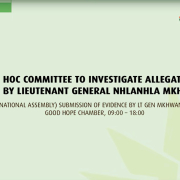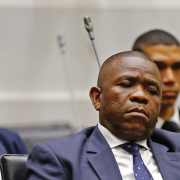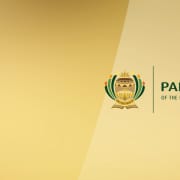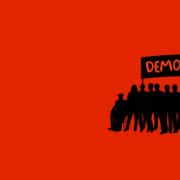|
Getting your Trinity Audio player ready...
|
A new report released on 15 September by research network Afrobarometer reveals that South Africans’ perceptions of the pervasiveness of corruption in the country have not improved. Afrobarometer Dispatch No. 476 (AD476) also shows respondents’ belief that high percentages of elected officials and civil servants are involved in corrupt activities.
Corruption has been a major news and conversation topic for a number of years, but interest in and concern about it has escalated since the Zondo commission of inquiry into state capture began its public hearings in August 2018. Not long after, the Covid-19 lockdown, which began in March 2020 and has not lifted, exposed unprecedented depths of corruption in the public and private sectors. No sooner had the anti-pandemic measures hurriedly been put into place, than disturbing reports of corruption in procurement of protective equipment and supplies, in distribution of food parcels meant to help those in need, and in use of relief funds, among others, flooded communication and information platforms.
President Cyril Ramaphosa, who assumed office in February 2018 , has repeatedly promised South African residents that government is committed to and is steadily working on the eradication of corruption. The audience perception in AD476 tells a different story.
Fully 64% of respondents say corruption has worsened over the past year. Half of them (49%) say it has “increased a lot”. Only 15% of people believe it has decreased, and 18% believe it has stayed the same.
Respondents also singled out the South African Police Service as a corrupt institution – 56% of respondents believe that most or all members are involved in shady activities. Corruption Watch has also noted high volumes of police-related corruption, which led to the development of its innovative Veza online tool to empower residents to hold the police accountable.
Furthermore, 53% of respondents believe that most or all officials in the Presidency are involved in corruption – despite Ramaphosa’s insistence that his department is an example of integrity and commitment to anti-corruption. “The high level of perceived corruption within the Presidency might be in part attributable to the ongoing and widely publicised Zondo Commission, which is investigating state corruption during [former president Jacob] Zuma’s tenure but whose proceedings might also impact public perceptions of the current president.””
Besides the police and the Presidency, respondents are sceptical about most or all local government councillors (51%) and members of Parliament (50%), followed by government officials (42%), business executives (37%), judges and magistrates (36%), and tax officials (33%). Religious leaders, NGOs, and traditional leaders fill the three positions at the bottom of the list, with 31%, 30% and 24% respectively.
The survey shows increasing concern among potential whistle-blowers that they will be victimised for reporting corruption. Three quarters of respondents (76%) say people risk retaliation or other negative consequences if they report incidents of corruption – this is an increase of 13 percentage points over the previous survey in 2018. Only one in five (21%) believes they can report corruption without fear of reprisal.
“The perception that reporting corruption carries a high risk is consistent – and increasing – across key demographic groups, with very little variation no matter the respondent’s gender, age, education level, urban-rural residence, and lived-poverty level,” notes AD476.
In terms of consequences for committing corrupt activities, 71% of South Africans believe that officials who break the law often or always are not punished for their crimes, as well as ordinary people, who are unpunished according to 49%.
Key findings
- Almost two-thirds (64%) of South Africans say that corruption increased in the past year, including half (49%) who believe it increased “a lot”.
- State institutions are widely seen as corrupt. Half or more of citizens say most or all officials are involved in corruption in the police (56%), the president’s office (53%), local government councils (51%), and Parliament (50%). Non-governmental organisations, traditional leaders, and religious leaders are less commonly seen as corrupt.
- Seven in 10 South Africans (70%) say the government is performing fairly badly or very badly in the fight against corruption.
- Among citizens who interacted with key public services during the past year, substantial proportions say they had to pay a bribe to avoid a problem with the police (24%) or to obtain a government document (21%), police assistance (15%), public school services (10%), or medical care (8%).
- Three out of four South Africans (76%) say people risk retaliation or other negative consequences if they report incidents of corruption, a 13-percentage-point increase compared to 2018.







